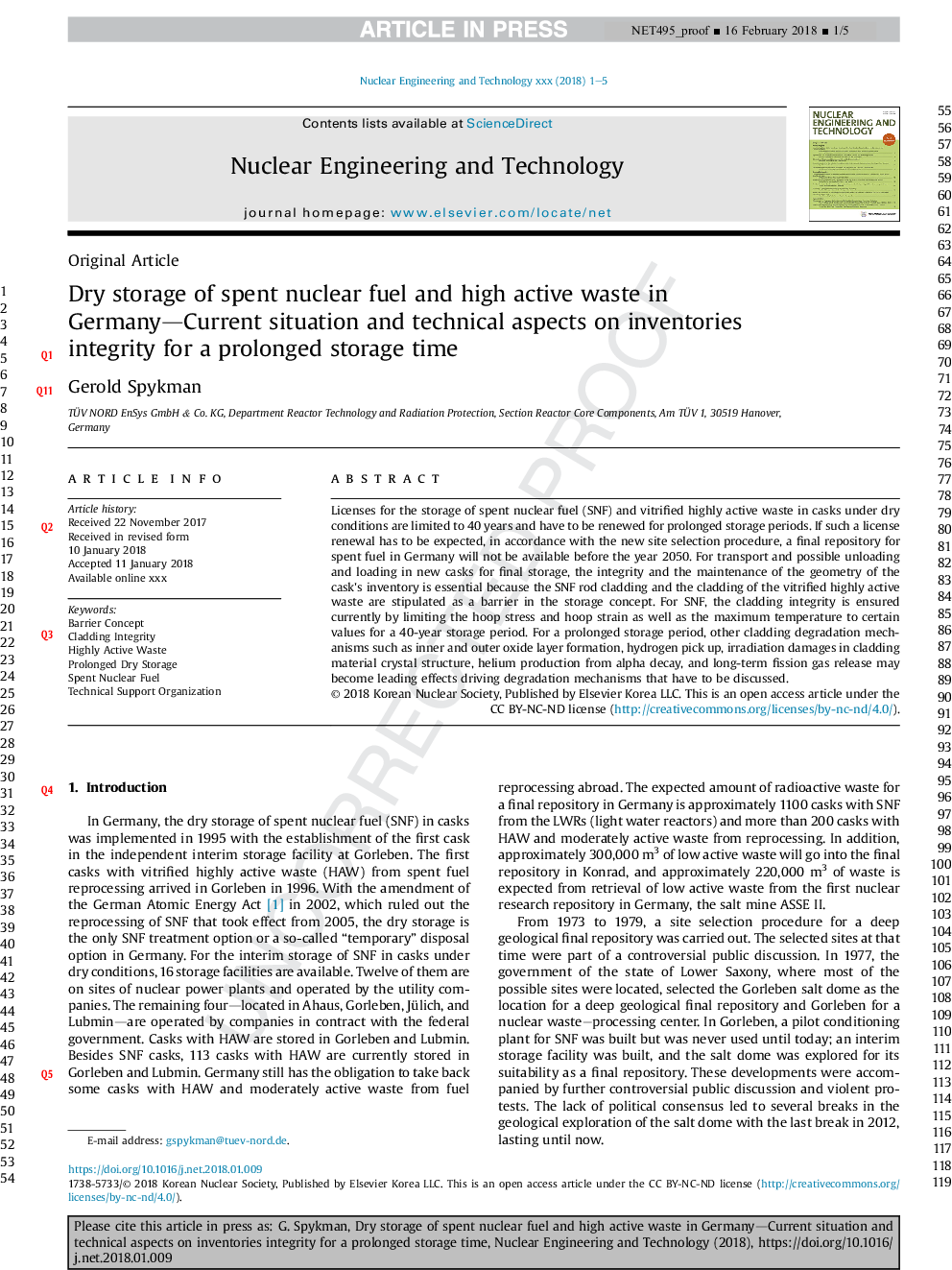| Article ID | Journal | Published Year | Pages | File Type |
|---|---|---|---|---|
| 8083846 | Nuclear Engineering and Technology | 2018 | 5 Pages |
Abstract
Licenses for the storage of spent nuclear fuel (SNF) and vitrified highly active waste in casks under dry conditions are limited to 40 years and have to be renewed for prolonged storage periods. If such a license renewal has to be expected since as in accordance with the new site selection procedure a final repository for spent fuel in Germany will not be available before the year 2050. For transport and possible unloading and loading in new casks for final storage, the integrity and the maintenance of the geometry of the cask's inventory is essential because the SNF rod cladding and the cladding of the vitrified highly active waste are stipulated as a barrier in the storage concept. For SNF, the cladding integrity is ensured currently by limiting the hoop stress and hoop strain as well as the maximum temperature to certain values for a 40-year storage period. For a prolonged storage period, other cladding degradation mechanisms such as inner and outer oxide layer formation, hydrogen pick up, irradiation damages in cladding material crystal structure, helium production from alpha decay, and long-term fission gas release may become leading effects driving degradation mechanisms that have to be discussed.
Keywords
Related Topics
Physical Sciences and Engineering
Energy
Nuclear Energy and Engineering
Authors
Gerold Spykman,
